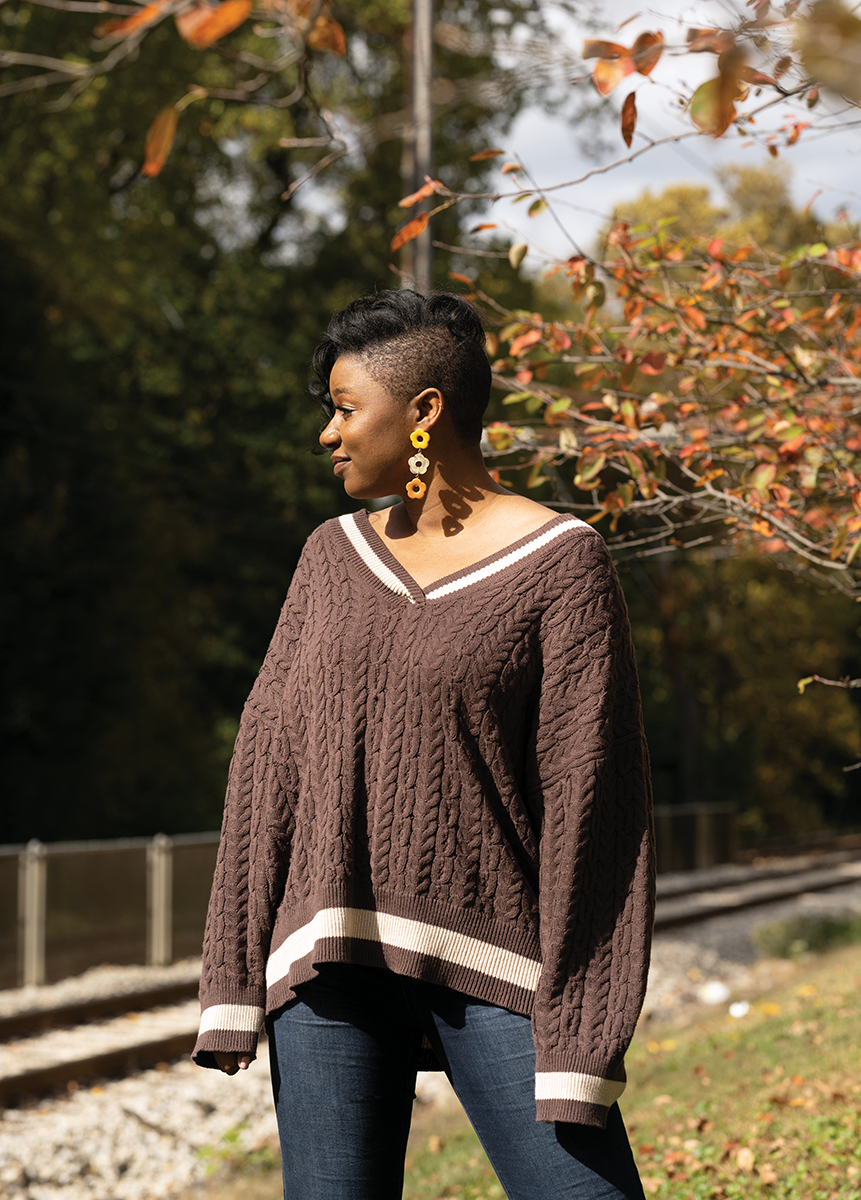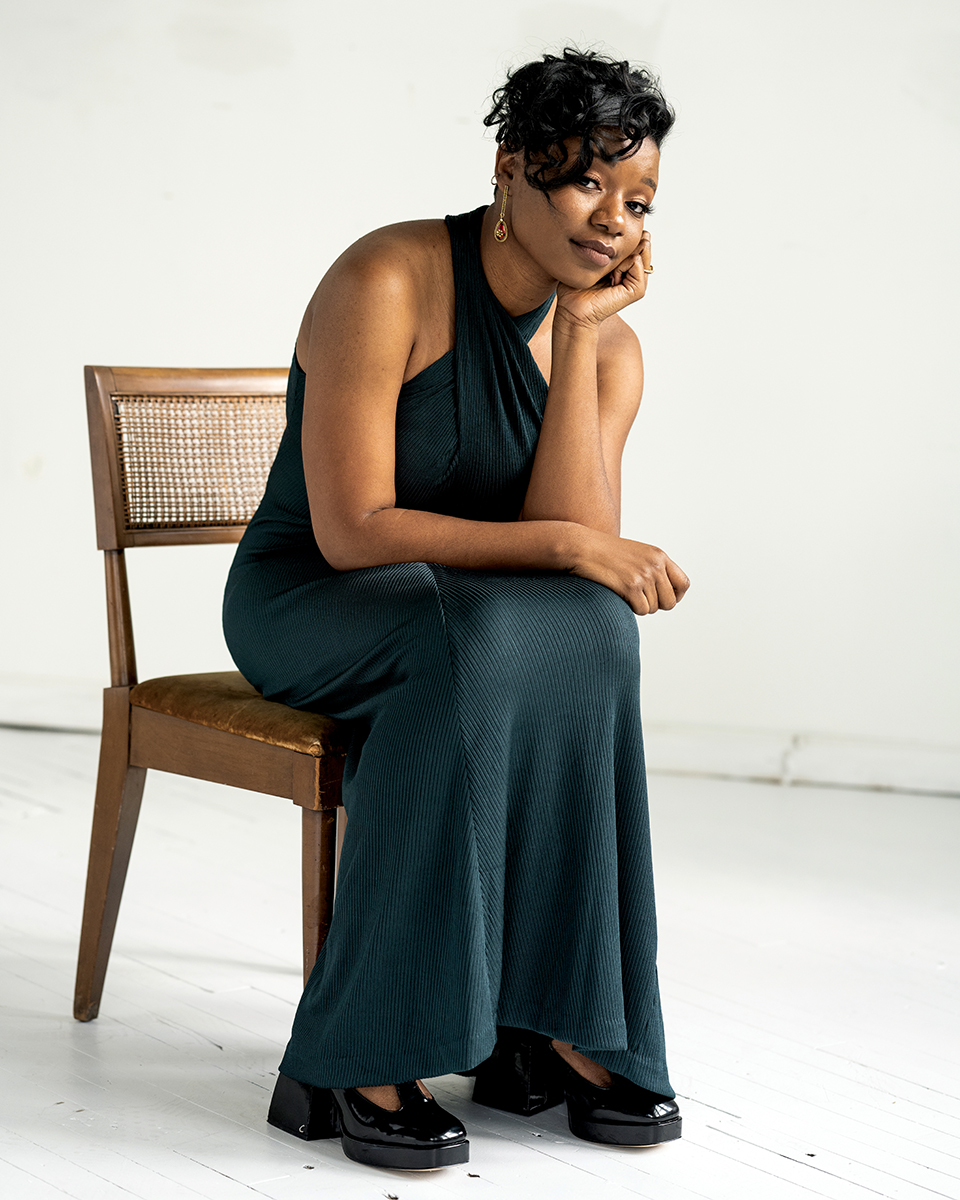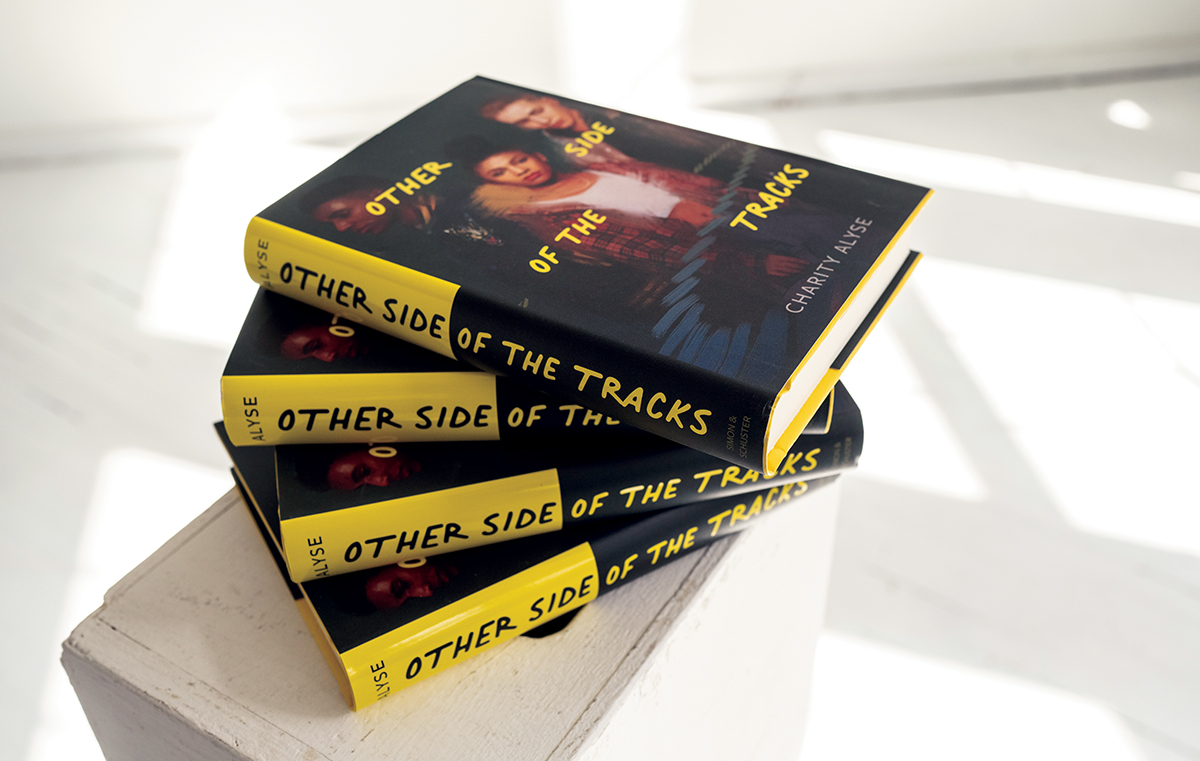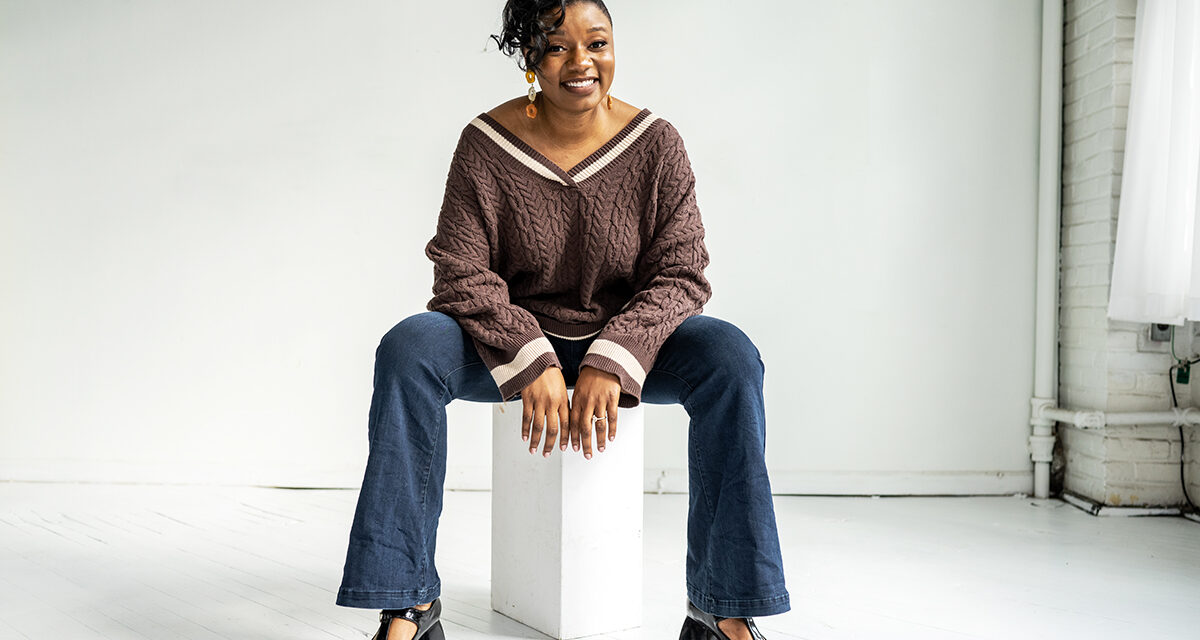With her debut novel, The Other Side of the Tracks, recently published, Charity Alyse is riding high. But her journey to becoming a published author was paved with rejections that started when she was 5 years old. Here’s how she used her voice and her words to launch her career as an author.
When Charity Alyse was a little girl, she loved to write. Always a voracious reader, Alyse liked to make some of her favorite stories her own. “I would re-create fairytales like Cinderella and Sleeping Beauty and put Black characters at the center—I would make a princess with micro braids. I just wanted see princesses and characters who looked like me,” Alyse recalls. “I was 5 years old, in kindergarten when I got my first rejection.”
It happened during recess. Alyse says she showed her kindergarten teacher one of her stories, and as soon as she began to read, her teacher’s face fell. The teacher told young Alyse that what she had created was actually plagiarism and warned her that it was a crime that could put her in prison. “She said, ‘No one will want to read these stories. You’re not going to be able to be an author writing stories like this.’ I cried and cried, and I threw away my stories. I remember I threw some in my cubby because I didn’t want the police coming in and arresting me,” Alyse recalls. “I remember everything about that conversation from the purple skirt suit she was wearing to where we were standing, because it was just so traumatizing.”
The Plot Thickens
That incident in kindergarten had a profound impact on Alyse. She basically stopped writing, although she still had an insatiable appetite for reading. By first grade, she was obsessed with the Junie B. Jones books, a series that centered on tales of almost 6-year-old Junie. She went to check out one of the books at her elementary school library when she had her second racially charged encounter with a teacher. “Back then, in order to check out the chapter books, we were asked to read some of the words inside. One of the girls in front of me was given one of the easy words,” she says. “The librarian looked at me and gave me one of the hardest words. I couldn’t read it, and I wasn’t allowed to check out the book.”
Having witnessed the interaction, Alyse’s first grade teacher wrote a note home, letting her mother know that her daughter had been the victim of a racist incident. The note suggested that, if she hadn’t already, it might be time to have a conversation with her daughter about racism. “My mom told me that people may treat me differently because of the color of my skin, but that it had nothing to do with the way God created me,” Alyse explains. “She told me it had nothing to do with how smart and beautiful I am or how I should see myself.”
Despite that guidance, Alyse had plenty of moments of self-doubt, including times when she wished she’d been born white. She describes feeling out of sync, unsure about identity as a Black girl who grew up the only Black girl in all-white spaces. Even when her parents made the decision to homeschool her, Alyse continued to confront confusing feelings about her identity. Watching TV shows and reading about characters in books who didn’t look like her left Alyse feeling uncertain about where she fit in. “I felt like I was too Black for the white people and too white for the Black people. I think that’s just how it is for a lot of people being Black in America.
“People around me kind of made me feel like I wasn’t truly Black because of the music that I listened to or the way I talk or the way I dress or the way I choose to wear my hair.”
Nevertheless, throughout her homeschooling and in pursuit of her undergraduate degree in English literature from Rowan University, Alyse continued to write. During her sophomore year, she took an African American literature class, learning about authors like Langston Hughes and Toni Morrison, who have had a profound impact on American literature. It was that experience that helped her find her identity as a writer. She learned about W.E.B. DuBois and his writing about “double consciousness,” which he described as a “twoness” of being “an American, a Negro; two warring ideals in one dark body, whose dogged strength alone keeps it from being torn asunder.”
Suddenly, pieces of her began to slide seamlessly into place. “I was uncovering those stories and unraveling the biographies of authors like [Invisible Man author] Ralph Ellison. I learned that a lot of Black people—especially during the Harlem Renaissance—were not being traditionally published, so they would get their own printing presses in their apartments and things like that,” she says. “Prior to that class, I was writing stories with main characters who were white. After that class, I finally started writing from the point of view of a Black woman, because I finally felt that I had permission to do it.”
People around me made me feel like I wasn’t truly Black because of the music I listened to or the way I talk or the way I dress or the way I choose to wear my hair.



Words of Encouragement
Have a budding writer in your house? Charity Alyse offers her advice for bringing out their best work.
1. Create space for their creativity. Whatever they are into, enhancing their space with writer tools, like a typewriter, shiny pens, and journals shows them your support for their love of writing.
2. Listen to and read everything they write! Yes, everything! A writer sharing their earliest work is like jumping out of a plane—gut-wrenchingly nerve-wracking!
3. Provide encouraging feedback. This is like the parachute after the jump! My parents did a great job of not only making themselves available to hear and read my stories, but also to provide encouraging feedback. That gave me the courage to write more.
4. Be supportive. Writing isn’t for the faint of heart. If your child decides to jump into a professional writing career, there will surely be rejection and pain along the way. Make sure to let them know you’re only a call, venting session, and hug away. It really makes a difference!
5. Tell them to never quit dreaming. You are their biggest supporter and their first fan. Every twist and turn along the way will be worth it when they hold their published work in their hands. Remind them of why they write in the first place, and when they want to throw in the towel, encourage them to never quit their daydream! It will pay off in the end.
Write on Track
It was just a year later, during her junior year at Rowan, that Alyse had a breakthrough. Her answer to a 10-page assignment for her Creative Writing Children’s Stories became the seed of a story that grew into her “dream book,” Other Side of the Tracks. With a main character—Capri Collins—who looked like and encountered many of the lived experiences that Alyse confronted in her young life growing up in New Jersey, Alyse stayed up all night to write her assignment. When she shared it with her professor, the response was utter enthusiasm and encouragement to turn the piece into a novel.
So she did, spending the next 9 months writing a story set in Hamilton and Bayside, NY—two fictional towns that represent the division of Alyse’s identity growing up a Black girl in a white town. (“Admittedly, these towns are me,” she says.) The story is loosely based on Shakespeare’s Romeo and Juliet, about three teens facing racial and societal constraints. During a time when the Black Lives Matter movement was beginning to gain traction, writing Other Side of the Tracks was incredibly therapeutic. She found that her ability to express herself through the lens of her story gave her a voice in the midst of protests across the nation and the world.
On the one hand, Other Side of the Tracks was her dream book. But as she began to look for a publisher, it looked like the dream would be snuffed out before it had a chance to take its first breath. Her book received more than 200 rejections. Agents and publishers said this book would never get published. “It was the book I cried countless tears over, the book I never gave up on, and the book that never gave up on me.”
Just when she felt ready to quit, George Floyd was killed by police in Minneapolis, igniting the Black Lives Matter movement into a frenzy. Suddenly the world wanted to hear from Black men and women in a way it hadn’t before, and that included Black authors. Alyse’s professor once again encouraged her to try to get Other Side of the Tracks published. This time it sold almost immediately in auction to Denene Millner Books, a division of Simon & Schuster, known as one of the “big four” publishers in the country.
Marketed as a YA novel, Alyse took to social media, using TikTok to build a following for the book before a single copy had been printed. She shared her personal story, building a platform of almost 20,000 followers and inviting them to share in her journey to publication. While she works toward a master’s degree in clinical mental health therapy, Alyse is already at work on her next novel and mentoring other aspiring authors. “My mother always says, ‘When life gives you lemons, write a book.’ That’s what I did. I wrote with the bitter lemons life handed to me and my people,” she says. “I wrote about hate, love, joy, and taking chances. [My characters] Justin, Capri, and Zach gave me the freedom to speak what I never felt I had the courage to.”





